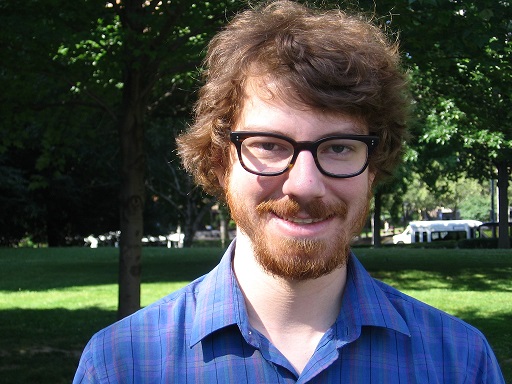 “This summer, I’m giving a talk called ‘How are models and explanations related?’ at the Canadian Society for History and Philosophy of Science, a paper titled ‘Concepts as Pluralistic Hybrids’ at the Society for Philosophy and Psychology, and a talk called ‘Idealized Models, Explanatory Roles, and Realism’ at the International Society for History, Philosophy, and Social Studies of Biology (in Montpellier France!)” -Collin Rice, Simpson College Class of ’07 (Philosophy and Physics) has experienced a vast array of opportunities since graduation:
“This summer, I’m giving a talk called ‘How are models and explanations related?’ at the Canadian Society for History and Philosophy of Science, a paper titled ‘Concepts as Pluralistic Hybrids’ at the Society for Philosophy and Psychology, and a talk called ‘Idealized Models, Explanatory Roles, and Realism’ at the International Society for History, Philosophy, and Social Studies of Biology (in Montpellier France!)” -Collin Rice, Simpson College Class of ’07 (Philosophy and Physics) has experienced a vast array of opportunities since graduation:
Collin Rice, 2007, Philosophy and Physics, spent this academic year at the University of Pittsburgh Center for the Philosophy of Science as a Postdoctoral Fellow. The Center only accepts two Postdoctoral Fellows a year out of many applicants and is generally recognized as the best center for the Philosophy of Science in the world. Rice spent the year writing and presenting scholarly papers as there are no teaching requirements for Postdoctoral Fellows. His specialty is Philosophy of Biology. Last year, he received his Ph.D in Philosophy from the University of Missouri at Columbia and he has accepted a tenure track job as Assistant Professor of Philosophy at Lycoming College in Pennsylvania.
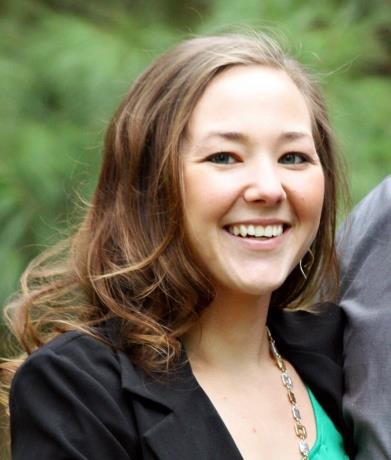 “My success in academia has to be largely credited to my time at Simpson College and the guidance I received during my four years. I am hard pressed to think of these opportunities existing for me in another undergraduate environment.” -Mary Huff, Simpson College Class of ’11 (Applied Philosophy and Psychology)
“My success in academia has to be largely credited to my time at Simpson College and the guidance I received during my four years. I am hard pressed to think of these opportunities existing for me in another undergraduate environment.” -Mary Huff, Simpson College Class of ’11 (Applied Philosophy and Psychology)
I am currently a second year PhD student in Behavioral Neuroscience at the University of Iowa. My laboratory has two main lines of research, and I participate in both heavily. First, we look at the neurobiology of drug addiction. Rats initially learn to perform a behavior to receive cocaine. Later in training, this same response no longer produces the drug. Thus, there are two memories that exist for the same context and behavior. Through various manipulations, we seek to better understand the neural circuitry underlying these two systems.
The second line of research focuses on memory consolidation following an inhibitory avoidance task. Here, the animals have no control of the outcome of the task and rather learn to associate a given context with an aversive stimuli (here, a footshock). Again, we are interested in the neural circuitry underlying the formation and retrieval of the memory and later extinction of this memory.
Simpson helped prepare me for my graduate school experience in nearly every way imaginable. First, the curriculum required in both of my major departments (Philosophy and Psychology) required challenging coursework and pushed my writing skills throughout my time at the college. This has helped me balance the research that I do as a graduate student with the coursework that is required for the program in which I am enrolled.
I also had numerous faculty in various departments who encouraged me to investigate advanced degrees in several fields. These same professors were always willing and available to meet and discuss coursework and what could be done after my time at Simpson. If this hadn’t occurred, I most definitely would not have sought out more information in neuroscience which, in the end, wonderfully brings the worlds of science and philosophy together.
My time at Simpson also allowed me to cultivate my leadership skills when I was a Destination Leader for two different faculty members in the Philosophy department. As a graduate student, I am a teaching assistant on a regular basis for undergraduate courses in the psychology department. This requires me to teach weekly short sessions to undergraduates, fill in as a lecturer to the overall course on a few occasions, and act as a resource for the younger students. All of these tasks map onto tasks or responsibilities I already dealt with earlier on in my academic career.
My success in academia has to be largely credited to my time at Simpson College and the guidance I received during my four years. I am hard pressed to think of these opportunities existing for me in another undergraduate environment.
 “I studied philosophy because I wanted to develop a greater depth of understanding and appreciation for science as an activity. As a behavioral scientist and psychotherapist, I am constantly grappling with epistemology and hermeneutics. Having a philosophy background has greatly enhanced the flexibility, rigor, and productivity of my thinking, which has directly impacted my research, writing, and teaching.” -James F. Boswell, Simpson College Class of ’03, (Philosophy and Psychology)
“I studied philosophy because I wanted to develop a greater depth of understanding and appreciation for science as an activity. As a behavioral scientist and psychotherapist, I am constantly grappling with epistemology and hermeneutics. Having a philosophy background has greatly enhanced the flexibility, rigor, and productivity of my thinking, which has directly impacted my research, writing, and teaching.” -James F. Boswell, Simpson College Class of ’03, (Philosophy and Psychology)
James F. Boswell, class of ’03, (Philosophy and Psychology) received his Ph.D. in Clinical Psychology from Penn State University. He completed his pre-doctoral clinical internship at Brown University Alpert Medical School, and a clinical-research fellowship at Boston University. Dr. Boswell is currently a Research Assistant Professor in the Department of Psychology at Boston University. In August 2013, he will join the Department of Psychology at the University at Albany, State University of New York as an Assistant Professor. As a psychotherapy researcher, Dr. Boswell has published extensively on the process and outcome of psychotherapy, psychotherapy training, and psychotherapy integration. In addition, he has received research awards and grant support from the American Psychological Association, the National Institute of Mental Health, the Society for Psychotherapy Research, and the Society for the Exploration of Psychotherapy Integration.
In addition, he will be receiving the American Psychological Association (APA) Division of Psychotherapy Early Career Award for his contributions to the science and practice of psychotherapy.
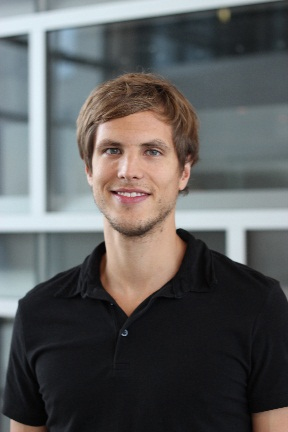 T.J. Kasperbauer, Simpson College Class of ’07, explains where a degree in Philosophy and Psychology has taken him:
T.J. Kasperbauer, Simpson College Class of ’07, explains where a degree in Philosophy and Psychology has taken him:
“I am currently writing a dissertation on moral psychology and animal ethics. In essence, I am arguing that many prominent theories in animal ethics make false assumptions about human psychology, particularly concerning our emotional responses to animals. My goal is to assist animal ethicists in constructing more psychologically plausible theories. My research is predominantly interdisciplinary, drawing heavily from research in psychology, neuroscience, and anthropology.
I am also just completing a two-year assignment as the research assistant for the Applied Ethics Initiative at Texas A&M. This project brought ethicists and scientists together to work on issues pertaining to animal and environmental ethics, engineering ethics, and climate ethics. This has helped propel my own research in these areas. For instance, this summer I will present a paper on moral psychology and climate change at the annual meeting of the Society for Applied Philosophy.”
Kasperbauer completed an M.S. in Psychology (2012) and a Ph.D. in Philosophy (2014). Currently he is a postdoc at the University of Copenhagen doing research in the area of Biomedical ethics. For more information please visit tjkasperbauer.wordpress.com
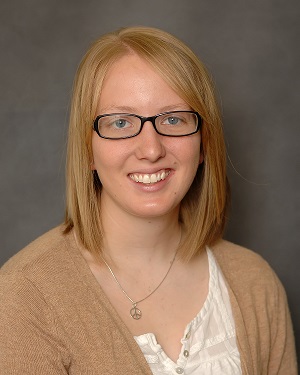 Molly Peterson, Simpson College Class of ’11, (Applied Philosophy and Mathematics) says of her experience at Simpson:
Molly Peterson, Simpson College Class of ’11, (Applied Philosophy and Mathematics) says of her experience at Simpson:
“I double majored in applied philosophy and honor mathematics. Upon graduation I joined the Federal Way AmeriCorps team where my applied philosophy assisted me in being a successful tutor for impoverished students. Using my knowledge of the poverty within the United States through a feminist ethics lens I was able to have compassion for my students’ situations, but still hold them to a high expectation in the classroom. I had an understanding of the cyclical nature of poverty and the issues many of my students could be facing daily to be able to build relationships with my students. During my year of service with AmeriCorps, I decided to go back to school to get my masters in mathematics at Marshall University. I now use my applied philosophy major daily when teaching introductory math courses. My applied philosophy degree has cultivated an understanding of our diverse society and has allowed me to be able to relate to students from all backgrounds and learning styles.”
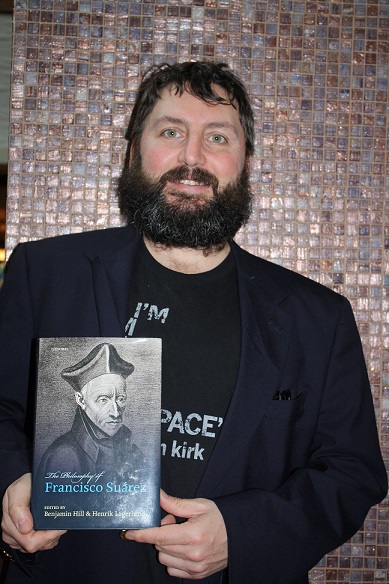 Benjamin Hill, Simpson College Class of ‘94 (Philosophy, Mathematics and History), PhD in Philosophy from University of Iowa and currently associate professor of philosophy at Western Ontario University in London, Canada, recently co-edited the book The Philosophy of Francisco Suarez, published by Oxford University Press.
Benjamin Hill, Simpson College Class of ‘94 (Philosophy, Mathematics and History), PhD in Philosophy from University of Iowa and currently associate professor of philosophy at Western Ontario University in London, Canada, recently co-edited the book The Philosophy of Francisco Suarez, published by Oxford University Press.
“My area of specialization is the history of early modern philosophy (16th and 17th centuries) and my work focuses on John Locke’s epistemology and theory of ideas. In addition to articles, professional lectures, and The Philosophy of Francisco Suarez, I have two more co-edited volumes currently in press: an Anthology on the History of the Philosophy of Language (Springer 2016) and an edited volume on Mathematization during the Scientific Revolution (Uminn 2016). A third volume (Routledge Companion to 16th Century Philosophy) should be submitted to the publisher this fall and released next year.”
Professor Hill has published numerous articles on John Locke and the history of modern philosophy in philosophical journals.
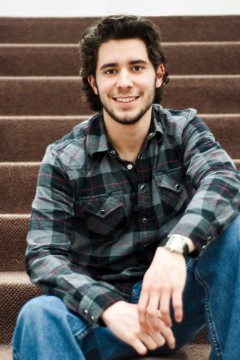 Alberto Bejarano, Simpson College Class of ‘12 (Philosophy, English and French), is currently studying Continental Philosophy at the University of Memphis and has received a full fellowship. While at Simpson (2008-2012), Bejarano received the Outstanding Senior in Philosophy Award, Outstanding Senior in English Award, and the Outstanding Senior in French Award. He also received the Trustee’s Award for the highest GPA in his class and spent a semester studying abroad in Tahiti during his senior year.
Alberto Bejarano, Simpson College Class of ‘12 (Philosophy, English and French), is currently studying Continental Philosophy at the University of Memphis and has received a full fellowship. While at Simpson (2008-2012), Bejarano received the Outstanding Senior in Philosophy Award, Outstanding Senior in English Award, and the Outstanding Senior in French Award. He also received the Trustee’s Award for the highest GPA in his class and spent a semester studying abroad in Tahiti during his senior year.
Steven Alan Ramsey, Simpson College Class of ’11 (Applied Philosophy and Political Science), graduated from the University of Notre Dame Law School in 2014. He currently works as the Director, of the Office of Governmental Policy and Legislation in the Department of Health and Senior Services under the Nixon Administration in Missouri. He will be clerking with the Supreme Court of Missouri beginning August 2016 with Judge Wilson. He is also an active member of the Missouri Bar. Serving as a board member of the Young Lawyers Section in Mid-Missouri, he was recently selected as a member of the Leadership Academy of the Missouri Bar aimed at high performing young attorneys.
Tracy Swalwell, Simpson College Class of ’12 (Philosophy and Political Science), recently graduated from Drake Law School in May 2015 with highest honors. Currently she is a compliance attorney with the Iowa Insurance Division.
Katy Siddall, Simpson College Class of ’06 (Philosophy), took her next step toward Washington, D.C. where she worked for Iowa Congressmen and handled many policy issues (for nine years) while also getting her Master’s in Public Management at Johns Hopkins. She now works on energy policy at The Wilderness Society- a non-profit company advocating for the protection of our public lands.
Sara English, Simpson College Class of ’02 (Philosophy), went on to the University of Iowa College of Law. She has been practicing in the field of Technology, Privacy, and Data Security for 10 years and is a partner at the national law firm Kutak Rock LLP.
Allison Hayes Foughty, Simpson College Class of ’94 (Philosophy), continued onto chiropractic school at Palmer where she graduated in 1999. She now practices in Johnston Iowa and lives in Polk City with her family.
Kimberly Gish, Simpson College Class of ’11 (Applied Philosophy), carried on her education and pursued a Master’s degree in School/Clinical Mental Health Counseling from Roosevelt University. She recently accepted a position as a school counselor at Dundee-Crown High School.